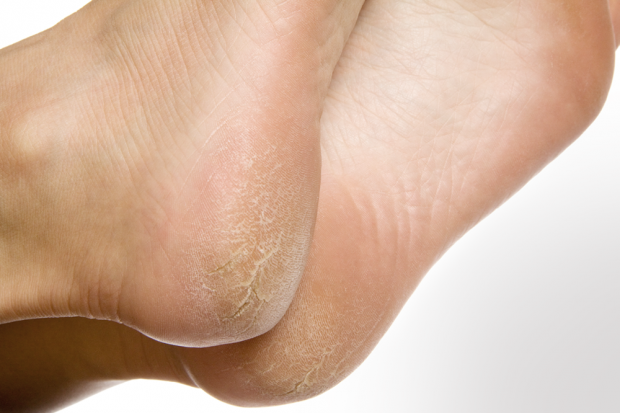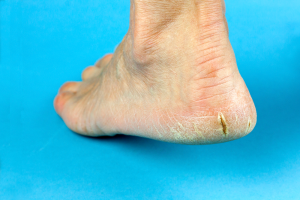Goodbye, Dry Treatment And Prevention For Cracked, Dry Heel Fissures
Nobody wants cracks the size of the Grand Canyon interfering with the health of their feet, but how does one prevent and cure unattractive and painful heel fissures? Read on for our ultimate guide on permanently getting rid of cracked, dry heels.
An ideal heel would be as smooth as a baby’s bottom, but heel fissures can make them look like the bottom of a dried out river. Also known as cracked skin, heel fissures occur when the feet don’t receive enough moisture and therefore begin to develop cracks, tears and dry patches on the bottom, outer edge of the heels. While heel fissures are generally considered to be a cosmetic problem only, the cracking and bleeding that are accompanied by the fissure can lead to more serious health conditions, making fissure treatment an extremely important aspect to one’s overall health.
Heel Fissure Causes
Pretty much everyone is susceptible to heel fissures, but the most common causes include consistently wearing sandals or open-backed shoes, living in a dry climate, frequently walking barefoot, obesity, lack of moisture, and having inactive sweat glands.
How to Treat and Cure Heel Fissures
Because fissures are painful and the open skin can leave the body exposed to bacteria and other harmful substances, it’s important to treat the affected areas as soon as possible. Start by soaking the feet in a warm bath for a minimum of 10 minutes or until the skin begins to soften. Then use a pumice stone to gently exfoliate the cracked, dry areas, being careful not to scrub too hard and further irritate the skin. Rinse the foot and apply a generous layer of good quality lotion to the fissures. Follow by wearing cotton socks to bed. Repeat this process nightly until the fissures disappear.
Another method to try would be applying one or two layers of tissue paper such as Kleenex to the fissure and then painting over the tissue with Friars balsam, which is a solution containing benzoin alcohol. The result is a homemade bandage that forms a long-lasting protective and artificial skin that allows healing to occur.
Alternatively, if the fissures are deep, your doctor may want to prescribe an antibiotic or antifungal ointment to help prevent against infection and soothe the irritated skin.
READ MORE: Heel Fissure Causes and Treatment
Heel Fissure Prevention
The best way to cure a heel fissure is to make sure you don’t get them at all. Ways to prevent the painful cracks include moisturizing your feet at least once a day, avoiding walking barefoot for extended periods of time (especially while outdoors), wearing properly fitted and comfortable shoes, and taking the proper steps to treat ailments like obesity and inactive sweat glands.
Notice concerning medical entries:
Articles having medical content shall serve exclusively for the purpose of general information. Such articles are not suitable for any (self-) diagnosis and treatment of individual illnesses and medical indications. In particular, they cannot substitute for the examination, advice, or treatment by a licensed physician or pharmacist. No replies to any individual questions shall be effected through the articles.






